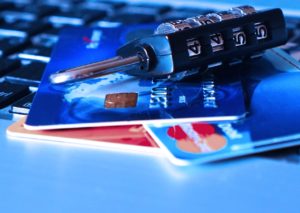
At some point in your life, you may have used or owned a credit card. However, while you know it’s a piece of plastic with a magnetic strip and/or a chip, you may not really know how they work.
Here’s a quick overview of how a credit card works, from the technical to the financial side of things.
The Technical Basics
To learn about how these pieces of plastic enable you to pay for purchases at the store, here’s a sample situation.
Let’s say you’re at an appliance store and planning to buy a new refrigerator for your home. To pay for this appliance, you give your credit card to the cashier, who in turn swipes its magnetic strip and/or inserts it inside a card reader. The card reader will then send your data—card number, limit, usage, and expiration date—over a secure connection to the merchant’s bank (or the acquiring bank) for approval.
Once the transaction is approved, it is then processed and the company that issued your credit card pays for your purchase first. This is not free money, however; you’ll need to pay for it at the end of the month when your bill arrives. Finally, the card reader may print a charge slip for you to sign and the transaction is completed.At the end of the day, the merchant gets money from all their credit card purchases from their bank.
A similar process is followed by e-commerce stores and online shops. However, instead of getting the data by swiping or inserting your credit card, these shops ask you to type them in.In this case, instead of acquiring banks, online payment gateways such as PayPal take care of screening and approving your transactions.
How Credit Card Companies Work
With this convenience at your fingertips, you probably wonder how credit card companies—such as banks—make money. Well, it’s easy to see once you get your bill at the end of the month. The various fees charged by your bank, from annual fees to the interest on late payments, are where they make money. In the same way that banks charge interest fees on loans, they also do the same for credit cards.
On top of that, they may also charge merchants a fee for every credit card transaction they’ve facilitated. That’s why smaller shops may charge you extra for purchases made by card or offer a discount when you pay in cash. Meanwhile, bigger stores can absorb those extra fees—or they may even offer a partnership with a credit card company to extend perks, such as the ones listed on this page.
Hence, to make the most out of your credit card, you’ll want to get the most out of the fees that you’re paying. For example, you can check if your card offers reward points that you can exchange for rebates or freebies at your preferred merchants. Or, at the onset, you can look for cards that offer fewer fees.Most importantly, you should pay your entire balance at the end of the month to prevent your debt from piling up.
Now that you know more about how credit cards work—both on a technical and a personal finance level—you can enjoy all their benefits without going into debt.


I actually have never used a credit card before. I’m aware of the many benefits, like having a few thousands available to buy items I wouldn’t normally afford on the spot. However, I also know that’s not really my money, which makes me very afraid of going into debt! So, no credit cards for me (for now).